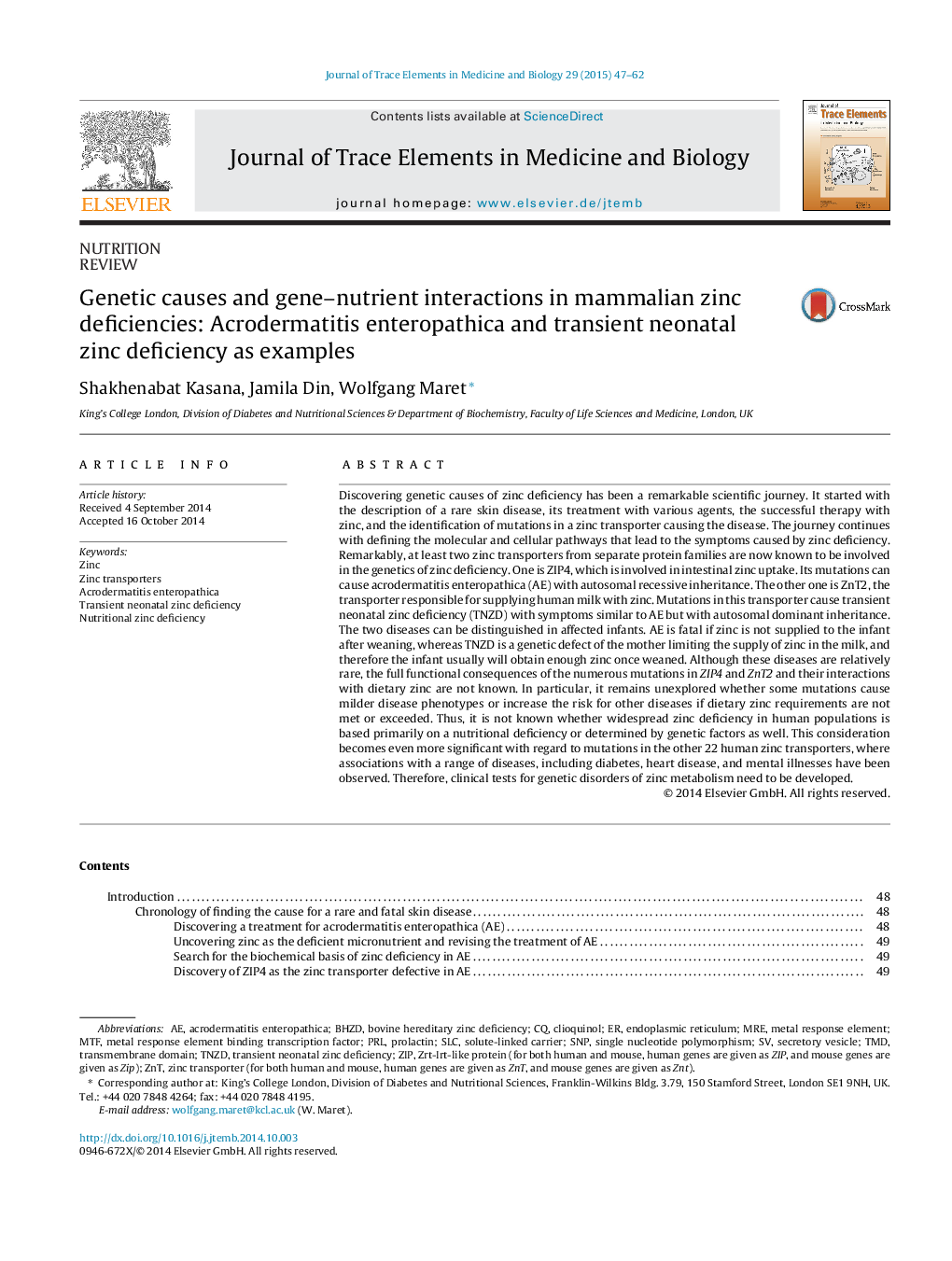| کد مقاله | کد نشریه | سال انتشار | مقاله انگلیسی | نسخه تمام متن |
|---|---|---|---|---|
| 1227342 | 1645361 | 2015 | 16 صفحه PDF | دانلود رایگان |

Discovering genetic causes of zinc deficiency has been a remarkable scientific journey. It started with the description of a rare skin disease, its treatment with various agents, the successful therapy with zinc, and the identification of mutations in a zinc transporter causing the disease. The journey continues with defining the molecular and cellular pathways that lead to the symptoms caused by zinc deficiency. Remarkably, at least two zinc transporters from separate protein families are now known to be involved in the genetics of zinc deficiency. One is ZIP4, which is involved in intestinal zinc uptake. Its mutations can cause acrodermatitis enteropathica (AE) with autosomal recessive inheritance. The other one is ZnT2, the transporter responsible for supplying human milk with zinc. Mutations in this transporter cause transient neonatal zinc deficiency (TNZD) with symptoms similar to AE but with autosomal dominant inheritance. The two diseases can be distinguished in affected infants. AE is fatal if zinc is not supplied to the infant after weaning, whereas TNZD is a genetic defect of the mother limiting the supply of zinc in the milk, and therefore the infant usually will obtain enough zinc once weaned. Although these diseases are relatively rare, the full functional consequences of the numerous mutations in ZIP4 and ZnT2 and their interactions with dietary zinc are not known. In particular, it remains unexplored whether some mutations cause milder disease phenotypes or increase the risk for other diseases if dietary zinc requirements are not met or exceeded. Thus, it is not known whether widespread zinc deficiency in human populations is based primarily on a nutritional deficiency or determined by genetic factors as well. This consideration becomes even more significant with regard to mutations in the other 22 human zinc transporters, where associations with a range of diseases, including diabetes, heart disease, and mental illnesses have been observed. Therefore, clinical tests for genetic disorders of zinc metabolism need to be developed.
Journal: Journal of Trace Elements in Medicine and Biology - Volume 29, January 2015, Pages 47–62